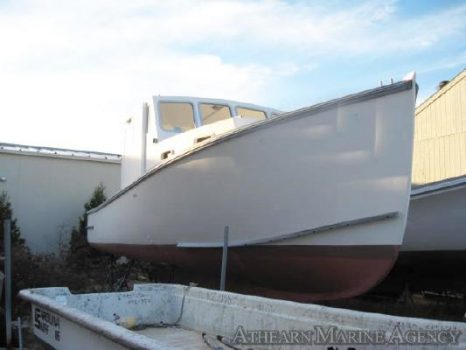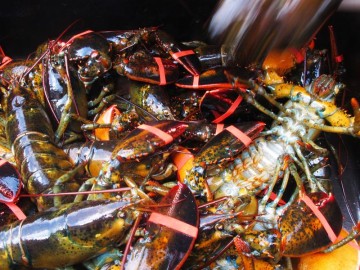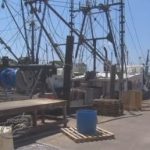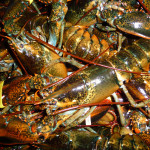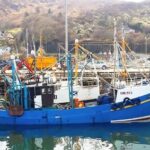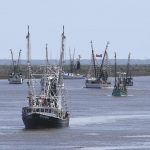Daily Archives: June 22, 2016
NOAA to reimburse fishermen 85 percent for 2016 at-sea monitoring costs
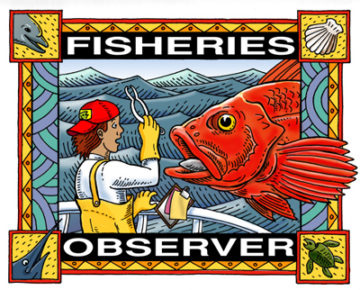 The National Oceanic and Atmospheric Administration will reimburse New England fishermen for 85 percent of the cost of at-sea monitors in 2016, U.S. Sen. Jeanne Shaheen’s office announced Wednesday. NOAA is expected to launch a program July 1 through the Atlantic States Marine Fisheries Commission where fishermen will be reimbursed for costs they pay this year to the at-sea monitors. Fishermen have said the costs, which began this year, are too much for them to pay and could sink their already weakened industry. NOAA is paying for the reimbursement program through extra funds left over from the 2015 fiscal year and does not intend to cover costs for at-sea monitors in 2017. Read the rest here 21:44
The National Oceanic and Atmospheric Administration will reimburse New England fishermen for 85 percent of the cost of at-sea monitors in 2016, U.S. Sen. Jeanne Shaheen’s office announced Wednesday. NOAA is expected to launch a program July 1 through the Atlantic States Marine Fisheries Commission where fishermen will be reimbursed for costs they pay this year to the at-sea monitors. Fishermen have said the costs, which began this year, are too much for them to pay and could sink their already weakened industry. NOAA is paying for the reimbursement program through extra funds left over from the 2015 fiscal year and does not intend to cover costs for at-sea monitors in 2017. Read the rest here 21:44
Carlos Rafael and smuggling accomplice Antonio M. Freitas trial date set to begin on Jan. 9, 2017
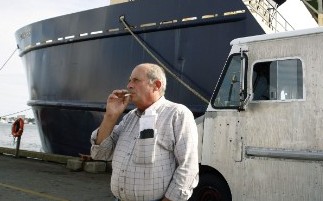 The two defendants’ cases have progressed side by side so far. Neither appeared in U.S. District Court on Wednesday in Boston, where District Court Judge William G. Young scheduled their trial to begin on Jan. 9, 2017, in a brief status conference. Neither a federal prosecutor nor lawyers for Rafael and Freitas commented afterward. Rafael, a 64-year-old Dartmouth resident who owns one of the largest commercial fishing operations in the U.S., including scores of New Bedford-based vessels, faces 27 counts on federal charges including conspiracy, false entries and bulk cash smuggling, according to the indictment filed last month. Freitas is a 46-year-old Taunton resident and Bristol County Sheriff’s Office deputy, suspended without pay. He faces two federal counts, one for bulk cash smuggling and one for international structuring. Read the rest here 20:37
The two defendants’ cases have progressed side by side so far. Neither appeared in U.S. District Court on Wednesday in Boston, where District Court Judge William G. Young scheduled their trial to begin on Jan. 9, 2017, in a brief status conference. Neither a federal prosecutor nor lawyers for Rafael and Freitas commented afterward. Rafael, a 64-year-old Dartmouth resident who owns one of the largest commercial fishing operations in the U.S., including scores of New Bedford-based vessels, faces 27 counts on federal charges including conspiracy, false entries and bulk cash smuggling, according to the indictment filed last month. Freitas is a 46-year-old Taunton resident and Bristol County Sheriff’s Office deputy, suspended without pay. He faces two federal counts, one for bulk cash smuggling and one for international structuring. Read the rest here 20:37
Last-in first-out policy squabble pits Nunavut and Labrador against Nova Scotia
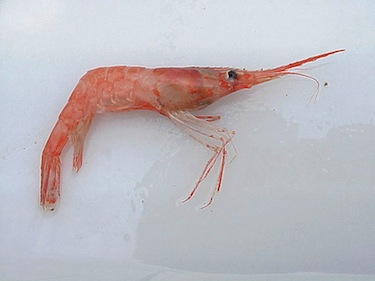 There’s a danger that Nunavut’s already inadequate share of offshore shrimp quota could get even smaller if the Department of Fisheries and Oceans continues to apply its last in, first out approach to allocating shrimp quotas, Nunavut Senator Dennis Patterson said last week. “All Nunavut asks for is to be treated fairly and to have the terms of their constitutionally protected Nunavut land claim respected,” Patterson said. Patterson’s contribution to the campaign comes at a time when various entrenched interests, especially long-established fishing fleets in Nova Scotia, are fighting to hold on to their total allowable catch in the face of shrimp stocks that are declining because of climate change. “Last-in, first-out,” or “LIFO,” is a federal policy that’s been applied to the northern shrimp fishery since at least 1997. Read the rest here 17:36
There’s a danger that Nunavut’s already inadequate share of offshore shrimp quota could get even smaller if the Department of Fisheries and Oceans continues to apply its last in, first out approach to allocating shrimp quotas, Nunavut Senator Dennis Patterson said last week. “All Nunavut asks for is to be treated fairly and to have the terms of their constitutionally protected Nunavut land claim respected,” Patterson said. Patterson’s contribution to the campaign comes at a time when various entrenched interests, especially long-established fishing fleets in Nova Scotia, are fighting to hold on to their total allowable catch in the face of shrimp stocks that are declining because of climate change. “Last-in, first-out,” or “LIFO,” is a federal policy that’s been applied to the northern shrimp fishery since at least 1997. Read the rest here 17:36
Scientist sees no benefit in expansion of Papahanaumokuakea Monument
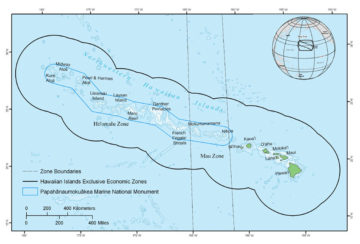 A senior scientist from the Western Pacific Regional Fishery Management Council says there’s no conservation benefits in expanding Hawaii’s protected waters. Council members are opposing the plan to expand the Papahanaumokuakea Monument saying it would be detrimental to Hawaii’s economy, food security and food production. An executive order, issued by President Obama in 2014, would increase the Monument five-fold and reduce the available fishing grounds in the exclusive economic zone around Hawaii from 63 to 15 percent. The scientist, Paul Dalzell, said claims that the monument’s expansion would improve conservation were false. He says, “It will not improve things for fisheries or for the abundance of marine fish. “For a start off, it’s open ocean so pelagic species just swim through it. It won’t pile up there and then replenish fish stocks around the main Hawaiians.” Link 16:19
A senior scientist from the Western Pacific Regional Fishery Management Council says there’s no conservation benefits in expanding Hawaii’s protected waters. Council members are opposing the plan to expand the Papahanaumokuakea Monument saying it would be detrimental to Hawaii’s economy, food security and food production. An executive order, issued by President Obama in 2014, would increase the Monument five-fold and reduce the available fishing grounds in the exclusive economic zone around Hawaii from 63 to 15 percent. The scientist, Paul Dalzell, said claims that the monument’s expansion would improve conservation were false. He says, “It will not improve things for fisheries or for the abundance of marine fish. “For a start off, it’s open ocean so pelagic species just swim through it. It won’t pile up there and then replenish fish stocks around the main Hawaiians.” Link 16:19
Bay of Fundy fishermen’s group mulls legal action to stop tidal turbine project
 Nova Scotia Environment Minister Margaret Miller announced approval Monday of a monitoring plan drawn up by the Fundy Ocean Research Centre for Energy (FORCE) and Cape Sharp Tidal Venture. But the Bay of Fundy Inshore Fishermen’s Association says little is known about marine life in the area and the instream tidal turbines can’t be made safe for the ecosystem. “I think she based her decision on industry-funded junk science and on political considerations,” says Colin Sproul, a lobster fisherman with the Bay of Fundy Inshore Fishermen’s Association. “She chose to completely ignore the voice and concerns of every fishing group in Nova Scotia, multiple environmental groups, as well as First Nations.” Video, Read the rest here 15:26
Nova Scotia Environment Minister Margaret Miller announced approval Monday of a monitoring plan drawn up by the Fundy Ocean Research Centre for Energy (FORCE) and Cape Sharp Tidal Venture. But the Bay of Fundy Inshore Fishermen’s Association says little is known about marine life in the area and the instream tidal turbines can’t be made safe for the ecosystem. “I think she based her decision on industry-funded junk science and on political considerations,” says Colin Sproul, a lobster fisherman with the Bay of Fundy Inshore Fishermen’s Association. “She chose to completely ignore the voice and concerns of every fishing group in Nova Scotia, multiple environmental groups, as well as First Nations.” Video, Read the rest here 15:26
N.C. Division of Marine Fisheries says Commercial and Recreational landings rose in 2015
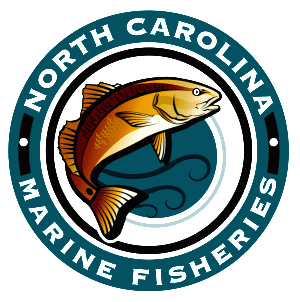 The DMF issued the 2015 Annual Fisheries Bulletin on Tuesday, which includes landings reports on both commercial and recreational landings in North Carolina. According to the reports, commercial fishermen sold 65,952,115 pounds of finfish and shellfish to seafood dealers last year, 6.8 percent (4,178,075 pounds) more than the 61,774,040 pounds harvested in 2014 and higher than the five-year average of 60.5 million pounds. The dockside value of these landings rose from $93,906,612 by 10.7 percent ($10,062,090) to an estimated $103,968,702, topping the five-year average annual value of $84.2 million. Most notable among 2015 commercial fishing statistics were increases in shrimp and hard crab landings during the latter months of the year. Shrimp landings increased from 4,691,067 pounds in 2014 by 94 percent (4,406,593 pounds) to 9,097,660 pounds in 2015, the highest shrimp landings since 2008. Read the rest here 14:07
The DMF issued the 2015 Annual Fisheries Bulletin on Tuesday, which includes landings reports on both commercial and recreational landings in North Carolina. According to the reports, commercial fishermen sold 65,952,115 pounds of finfish and shellfish to seafood dealers last year, 6.8 percent (4,178,075 pounds) more than the 61,774,040 pounds harvested in 2014 and higher than the five-year average of 60.5 million pounds. The dockside value of these landings rose from $93,906,612 by 10.7 percent ($10,062,090) to an estimated $103,968,702, topping the five-year average annual value of $84.2 million. Most notable among 2015 commercial fishing statistics were increases in shrimp and hard crab landings during the latter months of the year. Shrimp landings increased from 4,691,067 pounds in 2014 by 94 percent (4,406,593 pounds) to 9,097,660 pounds in 2015, the highest shrimp landings since 2008. Read the rest here 14:07
Athearn Marine Agency Boat of the Week: 32′ H & H Lobster, Tuna or Cruiser, 350HP, Cummins Diesel (low hours)
Specifications, information and 12 photos click here To see all the boats in this series, Click here 12:01
Turning Discarded Lobster Shells Into Batteries
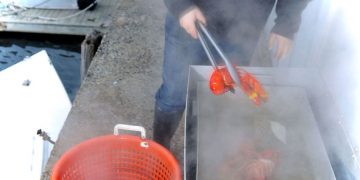 Mark MacLachlan, of the University of British Columbia in Vancouver, has found a new way to produce batteries: the discarded shells of shellfish. Specifically, by using chitin, the substance that gives certain animals their iridescence (think the luster of the interior of an oyster shell). As reported by Hakai Magazine, Chitin can already be used for a variety of purposes, both medical and industrial. It can be used as biodegradable surgical thread, meaning sutures eventually disappear on their own. It’s can also be used to form a version of biodegradable plastic. Read the rest here 11:16
Mark MacLachlan, of the University of British Columbia in Vancouver, has found a new way to produce batteries: the discarded shells of shellfish. Specifically, by using chitin, the substance that gives certain animals their iridescence (think the luster of the interior of an oyster shell). As reported by Hakai Magazine, Chitin can already be used for a variety of purposes, both medical and industrial. It can be used as biodegradable surgical thread, meaning sutures eventually disappear on their own. It’s can also be used to form a version of biodegradable plastic. Read the rest here 11:16
Bertie Armstrong: ending EU fisheries policy a good decision
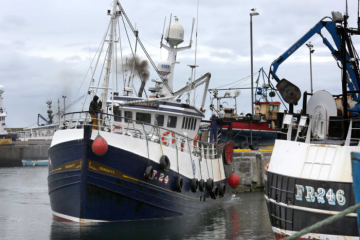 From the article: Of course, the European Union, and the much-derided Common Fisheries Policy (CFP) are at the very heart of that, which is why so many fishermen are implacably opposed to both. This is hardly surprising and it is worth reminding ourselves why fishing takes a unique position in Europe, making it so different from other industry sectors. Sovereignty and jurisdiction (beyond each member state’s slim strip of territorial waters) is pooled and the EU uses the CFP to govern every aspect of the industry. That fundamental change – the trading of sovereignty for collective control – took place when we joined. Collaboration is vital under any governance regime, but non-EU coastal states such as Norway and Iceland retain jurisdiction and negotiate on their own behalf. Read the op-ed here 10:56
From the article: Of course, the European Union, and the much-derided Common Fisheries Policy (CFP) are at the very heart of that, which is why so many fishermen are implacably opposed to both. This is hardly surprising and it is worth reminding ourselves why fishing takes a unique position in Europe, making it so different from other industry sectors. Sovereignty and jurisdiction (beyond each member state’s slim strip of territorial waters) is pooled and the EU uses the CFP to govern every aspect of the industry. That fundamental change – the trading of sovereignty for collective control – took place when we joined. Collaboration is vital under any governance regime, but non-EU coastal states such as Norway and Iceland retain jurisdiction and negotiate on their own behalf. Read the op-ed here 10:56
Oak Bluffs fisherman Luke Gurney recalled with love, pride
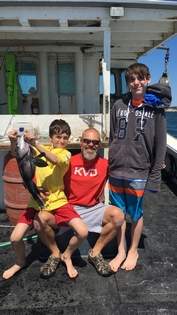 “He loved the water,” John Gurney said. “It became his nemesis.” Luke Gurney primarily fished Nantucket Sound and focused on whelk, sea bass and scup, his father said. He owned the 42-foot No Regrets, which he had operated since 2012. He sold whelk to dealers in New Bedford, who then shipped the sea snail to southeast Asia. “He was only four years into his business, but it was very successful,” John Gurney said. Last year, his son caught 107,000 pounds of whelk. “That’s a good take for a year of fishing,” the father said. John Gurney said his son had started fishing on freshwater ponds but had moved to salt water and “never left.” “If I fished with him, I knew I would catch fish,” Gurney, a sportfisherman, said. “He had a nose for fishing.” Luke Gurney grew up in New Bedford and graduated from high school in 1986. After college he moved to Martha’s Vineyard, where his parents have a second home. He was married to Robyn Gurney, and they had two sons, Jacob, 13, and Sam, 11. Read the rest here 08:30
“He loved the water,” John Gurney said. “It became his nemesis.” Luke Gurney primarily fished Nantucket Sound and focused on whelk, sea bass and scup, his father said. He owned the 42-foot No Regrets, which he had operated since 2012. He sold whelk to dealers in New Bedford, who then shipped the sea snail to southeast Asia. “He was only four years into his business, but it was very successful,” John Gurney said. Last year, his son caught 107,000 pounds of whelk. “That’s a good take for a year of fishing,” the father said. John Gurney said his son had started fishing on freshwater ponds but had moved to salt water and “never left.” “If I fished with him, I knew I would catch fish,” Gurney, a sportfisherman, said. “He had a nose for fishing.” Luke Gurney grew up in New Bedford and graduated from high school in 1986. After college he moved to Martha’s Vineyard, where his parents have a second home. He was married to Robyn Gurney, and they had two sons, Jacob, 13, and Sam, 11. Read the rest here 08:30






